Ep. 72: The Best FREE Mindful Tool
The Best FREE Mindful Tool Is…
 Clients and the CBT School community are often asking me for tools and tricks to manage anxiety. Thankfully, we are so blessed there are so many scientifically proven tools and treatment modalities to help those with anxiety, depression, and other struggles. However, I feel the need to bring us back to a mindful tool that we can use any time we want. The great thing about this tool is that it is THE BEST FREE MINDFUL TOOL! That’s right! It is the best, and it is free.
Clients and the CBT School community are often asking me for tools and tricks to manage anxiety. Thankfully, we are so blessed there are so many scientifically proven tools and treatment modalities to help those with anxiety, depression, and other struggles. However, I feel the need to bring us back to a mindful tool that we can use any time we want. The great thing about this tool is that it is THE BEST FREE MINDFUL TOOL! That’s right! It is the best, and it is free.
Before we do that, I want to look at things abstractly for a second. I promise it will make sense once I tell it so hear me out.
Let’s say I want to be a great mom. I want my daughter to think I am the freaking best mom ever.
Here is the thing! Just because I am her mother, that doesn’t automatically mean she and I will be good friends and have a great relationship. Or, that she will even like me.
To be a freaking rockstar mom, and to make a lasting impact on her heart and well-being, I am going to have to nurture her and our relationship.
I am going to have to hear her pains. I will need to sit with her when things are hard. She will need me to hold her hand and be compassionate when she makes mistakes. And wipe her tears when she cries. And most of all, she will need me to not deny her of her anger and sadness and brattiness. I am going to need to really be with her.
To have a nurturing and healing relationship, I can’t cheat and do it the fastest way. She is not going to think I am an amazing mom just because I buy her the newest iPad and get her the best clothes and hire the best nanny to take care of her all the time. Those things are great and will make her happy for the short term, but they won’t result in a good relationship with my daughter in the long term. She won’t feel deeply loved by me and she won’t feel deeply seen.
If I want to have a lasting and healthy relationship, I have to actually sit with her. Be with her. Not disown her because she is angry or being naughty. I can’t just leave it to the nanny to fix her when she is sad or angry or not cleaning her room. I can’t buy her a trip to Disneyland and send her off with the nanny and expect that she will feel loved by me just because I arranged it and paid for it. If I do that, she will understand that I will only be there when she is good, or when it is easy, and she will not feel worthy when she is having tough emotions. Here is where the healing and growth occurs.
So, here is this week’s lesson. When it comes to your mindfulness practice, you can’t cheat. You too have to do the actual “being with.” Our relationship with ourselves is no different. We all want to be deeply understood. We all want to feel worthy of being sat with. We all know that feeling deeply seen is one of the most healing experiences we can be given. Here’s the big question for this podcast episode. Do you try to cheat when it comes to actually spending time with yourself and deeply sitting with your experience? My guess is you are saying Yes. We cheat ourselves on self-care and just “being” all the time.
So, let’s talk about how we befriend ourselves. This is the best FREE mindful Tool I am talking about. The best free Mindful tool is your breath.
We disregard breath as one of the best mindful tools and we push forward wanting more supercharged, easier tools. During this podcast, we do a short breathing meditation, in hope to simply honor our “being” and “spend time with” ourselves. Returning to our breath really is the best free mindful tool.
Before we go, here is a reminder to check out our swag! WE ARE SO THRILLED TO FINALLY BE OFFERING IT! We have an array of t-shirts and tanks for men, women, and children. Each product has our very own CBT SCHOOL motto, “It is a beautiful day to do hard things.” Check it out at the following link! https://www.etsy.com/shop/CBTschool
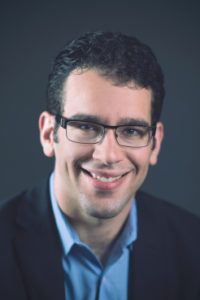 Hello there and welcome back to another episode of Your Anxiety Toolkit podcast.
Hello there and welcome back to another episode of Your Anxiety Toolkit podcast.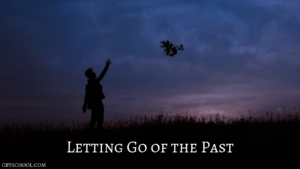 This week’s episode of Your Anxiety Toolkit Podcast is my response to a question that came directly from the online Facebook group
This week’s episode of Your Anxiety Toolkit Podcast is my response to a question that came directly from the online Facebook group  This week’s episode of Your Anxiety Toolkit is going to blow your mind! Yes! You better believe it! If you have been thinking you should start a self-compassion practice for yourself, THIS is the episode for you. Today we are going to discuss everything you need to know about self-compassion.
This week’s episode of Your Anxiety Toolkit is going to blow your mind! Yes! You better believe it! If you have been thinking you should start a self-compassion practice for yourself, THIS is the episode for you. Today we are going to discuss everything you need to know about self-compassion.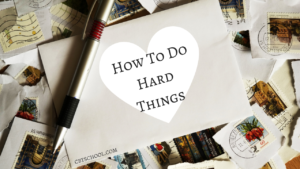 Welcome back to another Your Anxiety Toolkit Podcast episode! This week’s episode of Your Anxiety Toolkit is all about How to do Hard Things.
Welcome back to another Your Anxiety Toolkit Podcast episode! This week’s episode of Your Anxiety Toolkit is all about How to do Hard Things.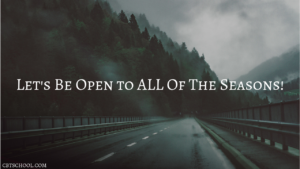 This podcast episode of Your Anxiety Toolkit is all about the Seasons. I have received a lot of requests to talk about changing seasons as we move from Summer to Autumn (here in the Northern Hemisphere). It isn’t just here. I am sure it is all around the world right now, as the seasons change from Winter to Spring for the Southern Hemisphere (Love you Australia!).
This podcast episode of Your Anxiety Toolkit is all about the Seasons. I have received a lot of requests to talk about changing seasons as we move from Summer to Autumn (here in the Northern Hemisphere). It isn’t just here. I am sure it is all around the world right now, as the seasons change from Winter to Spring for the Southern Hemisphere (Love you Australia!).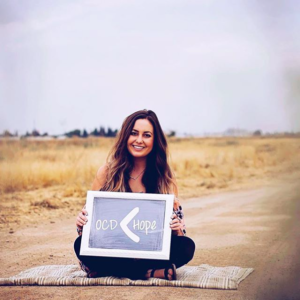
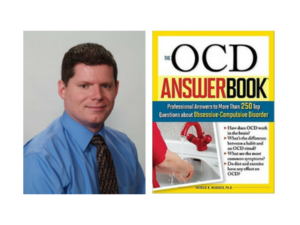 We have some SUPER exciting news this week. We are offering a NEW and FREE training called “The 10 Things you absolutely need to know about Obsessive Compulsive Disorder (OCD).” This webinar will be great if you are new to
We have some SUPER exciting news this week. We are offering a NEW and FREE training called “The 10 Things you absolutely need to know about Obsessive Compulsive Disorder (OCD).” This webinar will be great if you are new to 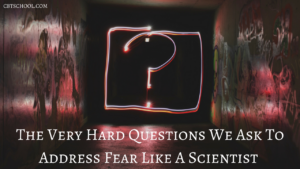 In this episode of Your Anxiety Toolkit, we talk about Addressing Fear like Scientists. Not the scary white haired kind! In this week’s episode, we talk about becoming scientists who run studies that are rational, evidence-based, and experienced-based. Each time we have a thought, we have an opportunity to be a scientist. Don’t worry about those white coats. You don’t need them for these experiments. And you don’t need to have a fully fledged scientist degree either.
In this episode of Your Anxiety Toolkit, we talk about Addressing Fear like Scientists. Not the scary white haired kind! In this week’s episode, we talk about becoming scientists who run studies that are rational, evidence-based, and experienced-based. Each time we have a thought, we have an opportunity to be a scientist. Don’t worry about those white coats. You don’t need them for these experiments. And you don’t need to have a fully fledged scientist degree either.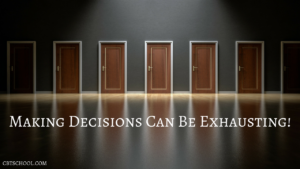 Experiencing and managing anxiety is a hard and courageous task. And you guys know what I am going to say next. It is a beautiful day to do hard things!
Experiencing and managing anxiety is a hard and courageous task. And you guys know what I am going to say next. It is a beautiful day to do hard things!